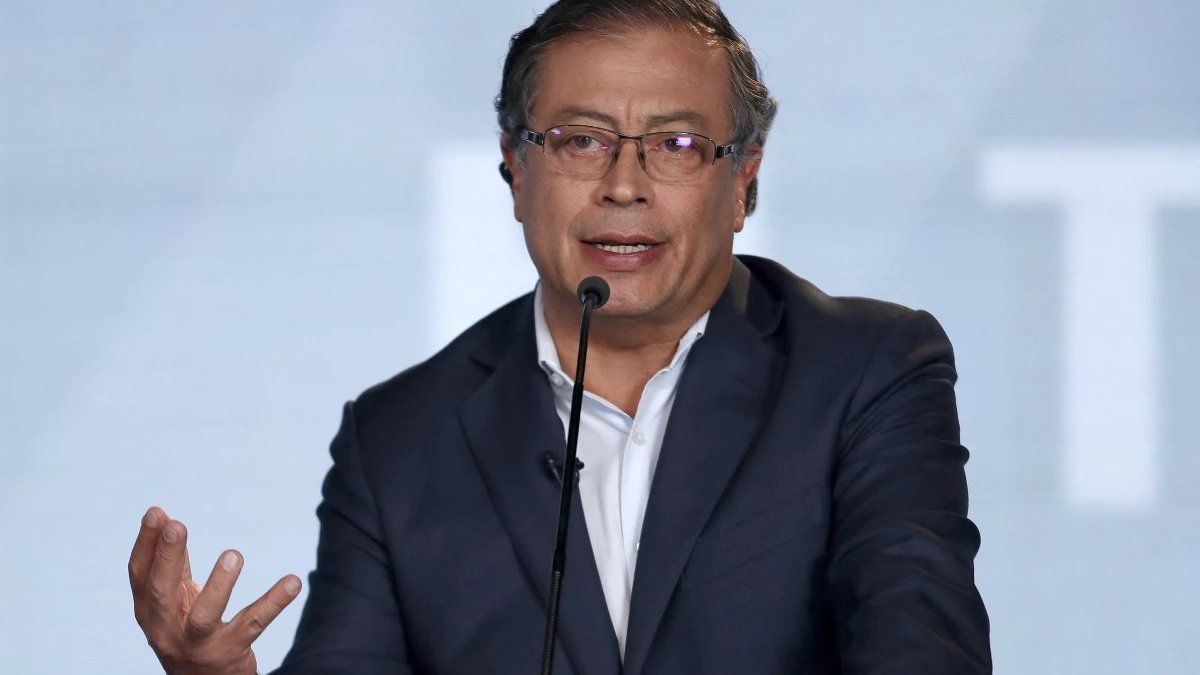The candidate won support by promising profound change, including social and economic reform in Colombia, where roughly half the population lives in monetary or extreme poverty.
Gustavo Petro supports an economy that relies on agriculture instead of extractive industriesprompting Colombia’s oil, gas and mining sectors to back its rival, the construction millionaire Rodolfo Hernandezwho came in a surprise second place behind the leftist candidate in the first round of elections.
The former guerrilla promises to stop new hydrocarbon exploration and the construction of more large-scale open pit mines, end fracking research pilots, as well as offshore oil and gas projects, some of which already have contracts. signed.
Some in the industry believe that the left-wing candidate will not be able to stop his operations in the short term, because the government of the current president Ivan Duke signed 69 exploration and production contracts during the bidding rounds.
Gustavo Petro announces a marked difference from the policies of Duque, whose term ends in August, and sources from both the oil and coal sectors they fear that their eventual government will make it difficult to obtain permits to further develop existing operations.
“This is a resilient sector, but it is inevitable that in the face of adverse policies or low prices it will lag behind,” a senior oil and gas industry source said.
Oil and mining combined provide more than 50% of Colombia’s exports, according to government figures, and up to 8% of the Gross Domestic Product (GDP).
Industrialists in the sector largely refused to be quoted by name or identify their companies, saying they fear reprisals.
One assured that if Petro wins, it must accept that the income generated by mining is vital to finance social programs, which it promised to increase to correct the deep inequality.
No to fracking, angry miners
Colombia ended last year with oil reserves equivalent to 7.6 years of consumption and eight years of gas, according to government figures.
The Colombian Petroleum Association, an industry union, warned that ending new oil and gas contracts would jeopardize energy self-sufficiency and would herald a more expensive future for energy imports. The entity refrained from commenting on the candidates individually.
An oil and gas industry source who declined to be named told Reuters they would prefer Hernandez.
“The first round was encouraging,” the source said, arguing that the industry could survive a hostile government.
“A four-year pause in the bidding rounds will not be the death of the industry,” he said, noting that everyone has “more than enough (oil and gas) blocks to go on.”
Gustavo Petro is unlikely to be able to reverse contracts that have already been awarded, but oil and mining businessmen fear he could increase red tape.
Both candidates announced that they oppose hydrocarbon fracking, but activists against this technique distrust Hernández, who was mayor of Bucaramanga, the capital of the department of Santander, where two pilot research projects initially supported by the businessman are being carried out.
The Colombian Mining Association (ACM) was furious after Gustavo Petro linked coal with cocaine, calling the expression “irresponsible and above all disrespectful,” according to a message that its president, Juan Camilo Nariño, shared with journalists. .
Colombia is a major exporter of coal, shipping almost 60 million tons in 2021, according to DANE, the government statistics agency.
Colombia would have to multiply its agricultural sector by six to match the economic contribution of mining, according to the ACM. “The mining operations are going to suffer serious delays, serious setbacks that really scare investors,” said a source who asked to remain anonymous. Hernández, on the other hand, would be “good for the (mining) sector, good for the private sector,” he assured.
Source: Ambito
David William is a talented author who has made a name for himself in the world of writing. He is a professional author who writes on a wide range of topics, from general interest to opinion news. David is currently working as a writer at 24 hours worlds where he brings his unique perspective and in-depth research to his articles, making them both informative and engaging.




